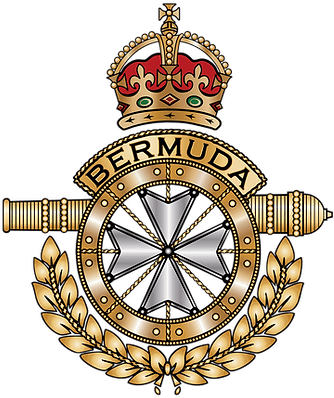A disciplined force that operates in Bermuda on land and sea to ensure Bermuda’s safety and security, protect Bermuda’s interests, and strengthen Bermuda society.
OUR ROLES
Maritime
Maritime
Force Protection
Force Protection
Humanitarian Aid / Disaster Relief
Humanitarian Aid / Disaster Relief
Ceremonial
Ceremonial
International Assistance
International Assistance
Enhancing Bermudian Society
Enhancing Bermudian Society
OUR TRADITIONS
Colours of the Royal Bermuda Regiment
Throughout history, people have used flags and symbols to show their loyalty to nations, leaders, and communities. For military units, regimental Colours have long served as powerful emblems of pride, duty, and unity. In times before modern communication, these flags acted as rallying points in battle—carefully guarded and revered.
At the Royal Bermuda Regiment, our Colours continue this proud tradition. They represent our unwavering commitment to service, honour, and the enduring values of bravery and sacrifice.
The Queen’s Colour, carried on the right, is the senior of the two. It features the Union Flag, the monarch’s crown, and the words Bermuda Regiment—symbolizing our allegiance to the Crown. The Regimental Colour, carried on the left, displays our unique emblem: a Maltese Cross over crossed gun barrels, encircled by roses and thistles.
These Colours are carried on parade by junior officers known as ensigns, and protected by two Colour Sergeants and a Warrant Officer. When uncased, the Colours are saluted by all ranks—a gesture of deep respect.
Our original Colours were presented on 24 November 1965 by HRH Princess Margaret, our first Colonel-in-Chief. She returned in 1990 to present a second set for our 25th Anniversary. Our current Colours were presented by HRH The Duchess of Gloucester in November 2010. Each year, the Warrant Officers and Sergeants’ Mess commemorates this legacy by hosting the Colours Ball, first held on 27 November 1965.
The Regiment also honours tradition through its ceremonial 25-pounder artillery guns, dating from World War II. As artillery units do not carry Colours, these historic guns are accorded the same honour and respect—and serve a vital role in official saluting ceremonies.
The design blends key elements from our Regiment’s historic roots: a field artillery gun set within an oversized wheel, symbolizing the Bermuda Militia Artillery (BMA), and a Maltese Cross, inherited from the Bermuda Volunteer Rifle Corps (BVRC). These are framed by a laurel wreath below, a scroll reading Bermuda above, and topped with a royal crown—representing service to the Crown and country.
Our ceremonial and operational uniforms also reflect this rich heritage, combining distinctive features from both the BMA and BVRC to honour the legacy and tradition of those who came before us.
The Regimental Badge:
A Symbol of Identity and Pride
The Regimental Badge is a powerful emblem recognized by serving members, veterans, and international partners alike. More than just a mark of identification, it is a symbol of pride and unity within the Royal Bermuda Regiment. You’ll find the badge displayed prominently on headdress, uniform flashes, signage, and across all official materials.
PAYING MILITARY COMPLIMENTS
Basic Acts of Military Courtesy
Hand Salute: Exchanged between soldiers and officers, or between officers of differing seniority. This gesture is a long-standing military tradition symbolizing mutual respect.
When to Stand or Salute
- Stand to attention when meeting a senior.
- Salute if the senior is an officer — even if they are not in uniform.
In Uniform without Headdress:
- Stand to attention only (no salute).
In Civilian Dress (or both parties without headdress):
- Stand to attention to acknowledge a senior rank.
When in a Group
- All soldiers stand to attention.
- The most senior soldier salutes on behalf of the group (if addressing an officer).
Special Situation
Ceremonial Music: When any of the following are played:
- National Anthem
- Last Post
- Reveille
- Sunset
- Regimental March
All soldiers stand to attention
Warrant Officers and Officers must salute

